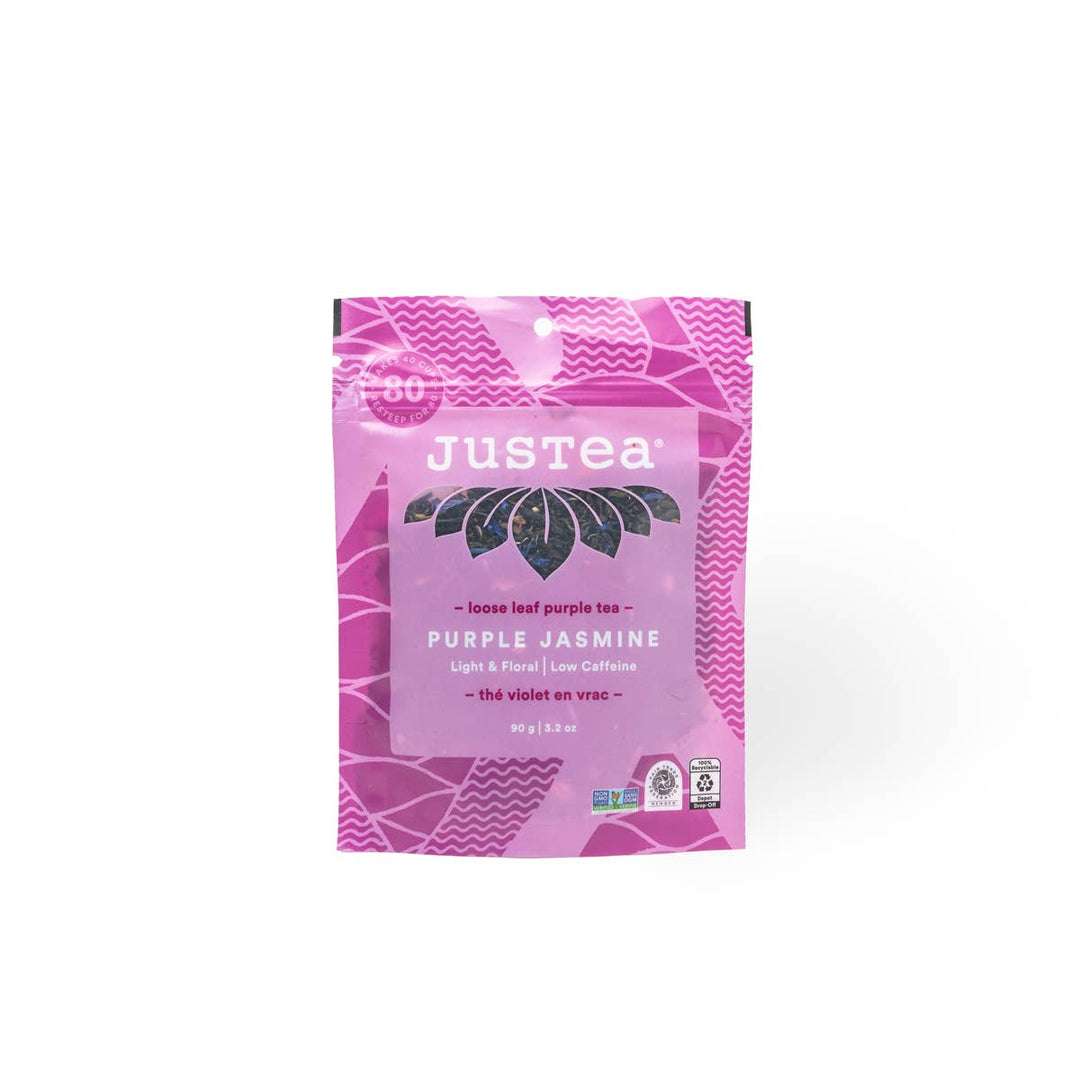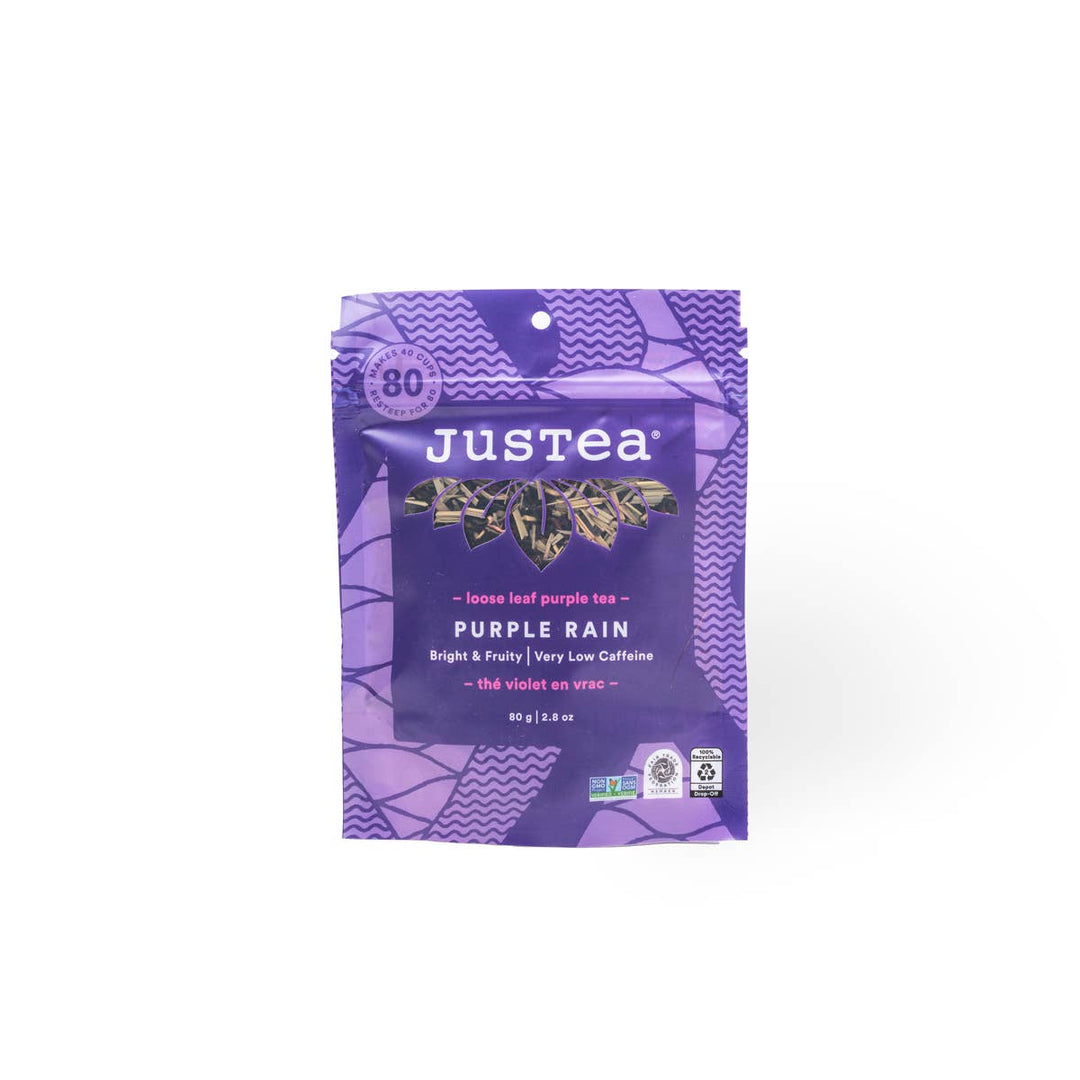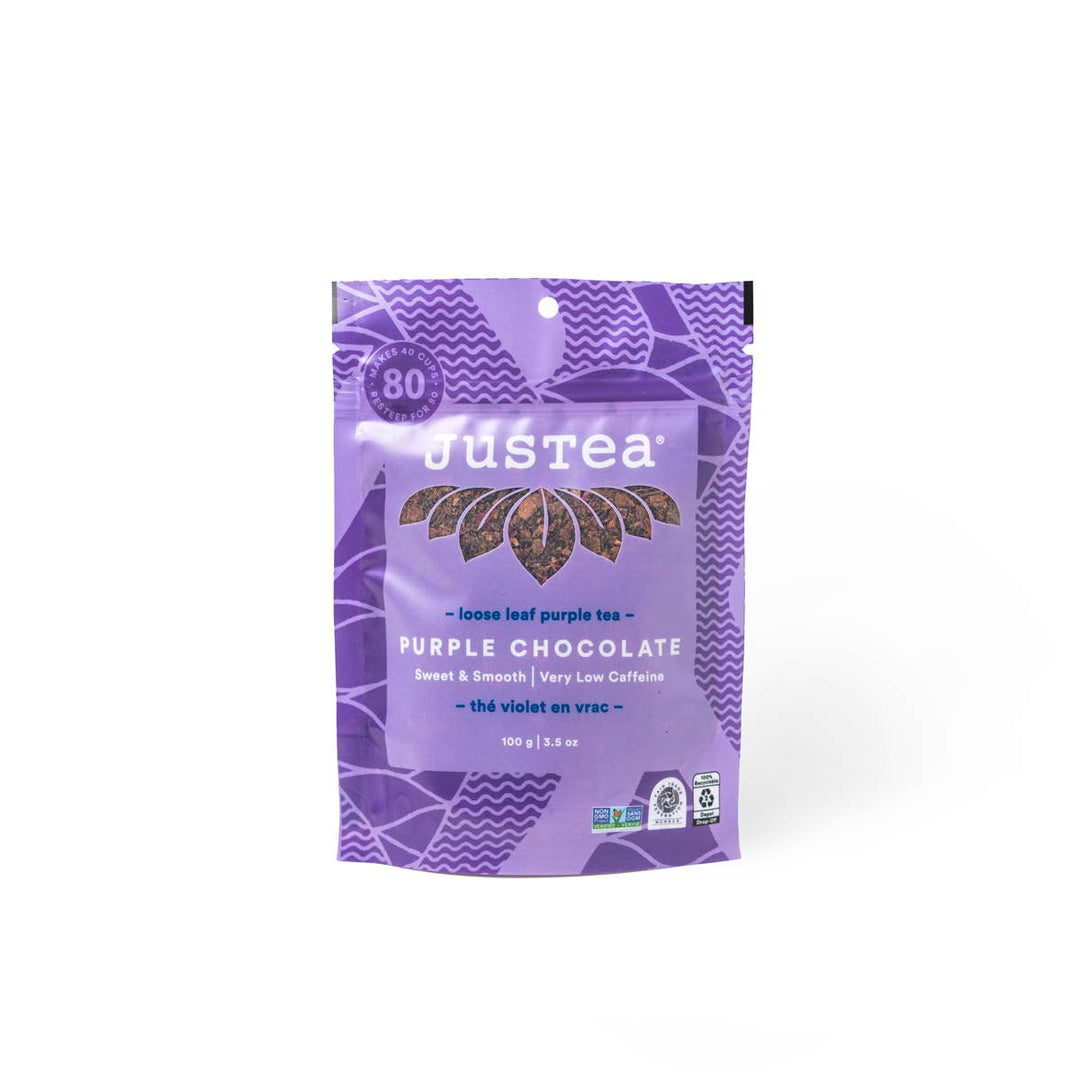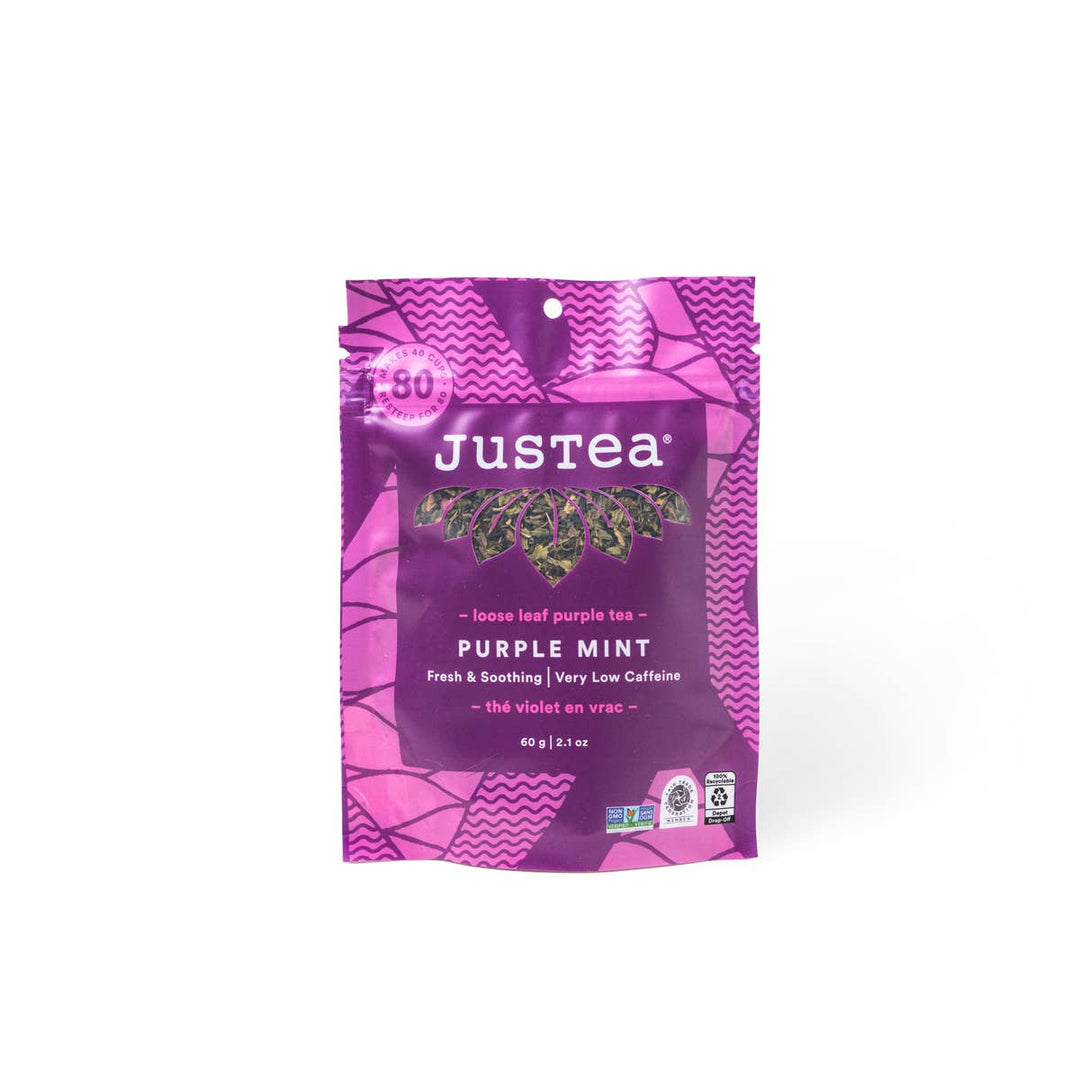Purple Tea
Organic purple tea, a fascinating variant of the Camellia sinensis plant, stands out from the crowd of traditional teas with its unique purple hue. This tea, also known as purple leaf tea or purple bud tea, is a testament to nature's diversity and the wonders it can create.
What sets organic purple tea apart is the presence of anthocyanins, natural pigments responsible for the purple coloration of the leaves and buds.
Here are some key characteristics of organic purple tea:
Appearance: This tea's leaves and buds have a distinct purple hue, distinguishing them from other tea varieties. The color can vary from deep purple to reddish tones.
Flavor: Organic purple tea often has a smooth, delicate taste with fruity and floral undertones. Depending on the specific cultivar and processing methods, the flavor profile can range from mild to robust. Purple Tea pairs well with steak and chocolate to bring out its special flavor.
Organic purple Tea, like its tea counterparts, is a treasure trove of health benefits. Packed with antioxidants, polyphenols, and catechins, it offers potential health advantages. But what sets it apart is the presence of anthocyanins, which add an extra layer of antioxidant properties, making it a health powerhouse.
Caffeine Content: Purple tea typically contains caffeine, although the exact amount can vary. It generally contains less caffeine than black tea but more than green tea. The caffeine content can influence the tea's stimulating effects.
Organic purple tea, a product of the high-altitude regions of Kenya, Africa, specifically the Nandi Hills area, is a testament to the art of tea cultivation. It was developed through natural crossbreeding between various tea varieties, a process that took years of dedication and expertise to obtain the unique purple characteristics that make it so special.
Processing: The processing methods for organic purple tea can differ depending on the desired final product. Like other tea types, the leaves may undergo withering, rolling, oxidation, and drying stages to achieve the desired flavor and aroma.
Organic purple tea has gained popularity recently due to its distinctive appearance, potential health benefits, and unique flavor profile. It offers tea enthusiasts a captivating alternative to traditional tea varieties.





